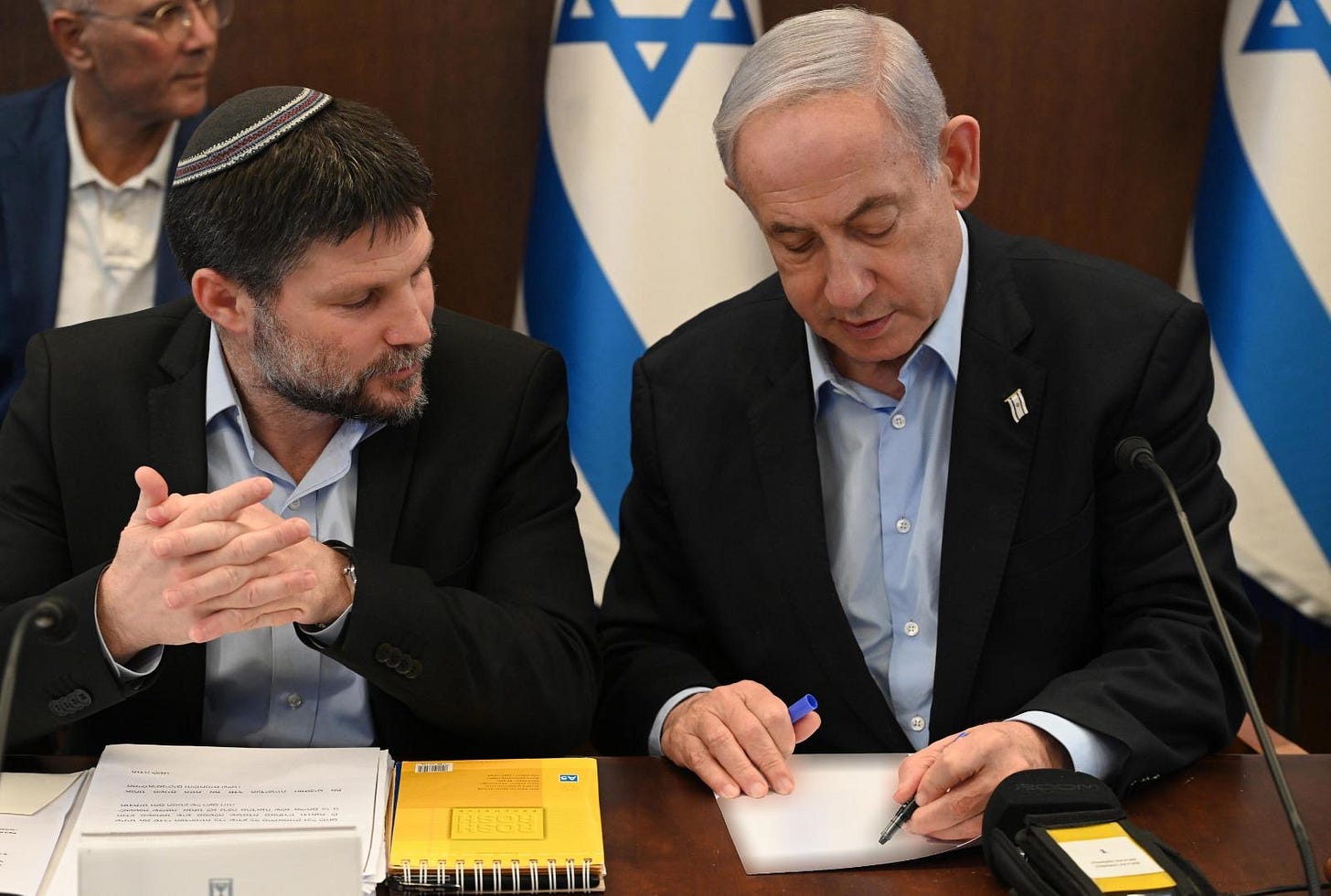U.S. concerned about Israel threat to collapse Palestinian economy
Far-right Israeli finance minister withholds Palestinian Authority tax revenue, says he will cut off Palestinian banks as punishment for European nations recognizing Palestinian statehood.
Even as it urges greater Israeli restraint in Gaza and the reopening of the Rafah border crossing for humanitarian aid, the United States is expressing growing concern about the potential economic collapse of the Palestinian Authority and the instability that would cause in the West Bank and ultimately Israel, amid threats by an ultra-nationalist Israeli minister to cut off Palestinian banks from the Israeli financial system.
The United States and its partners “need to do everything possible to increase humanitarian assistance to Palestinians in Gaza, to curtail violence in the West Bank, and to stabilize the West Bank’s economy,” US Treasury Secretary Janet Yellen told a press conference in Stresa, Italy today (May 23), ahead of a meeting of G7 finance ministers.
Israel’s far-right Finance Minister Belazel Smotrich vowed Wednesday to withhold the transfer of tax revenue to the Palestinian Authority as retribution for the decision by three European nations to recognize a Palestinian state.
But a diplomatic source said that Smotrich had in fact been withholding all tax revenue from being sent to the PA this month—in an action that preceded the decision announced Wednesday by Ireland, Norway, and Spain to recognize Palestinian statehood.
The Israeli government honored the Norway agreement for two months, in March and April, the source said. Then this month, it didn’t.
US National Security Advisor Jake Sullivan said Smotrich’s threatened actions would undermine both Palestinian and Israeli security.
“I think it’s wrong,” Sullivan told journalists at the White House briefing Wednesday. “I think it’s wrong on a strategic basis because withholding funds destabilizes the West Bank. It undermines the search for security and prosperity for the Palestinian people, which is in Israel’s interests.
“So from our perspective, those funds should continue to…flow,” he said.
The Israeli finance minister’s threat to cut off Palestinian banks comes after the prosecutor of the International Criminal Court said Monday that he was applying for arrest warrants for the Israeli prime minister and defense minister for their role in political decisions that have led to starvation in Gaza and the targeting of the civilian population. The ICC prosecutor Karim Khan also is seeking arrest warrants for three Hamas leaders for war crimes and crimes against humanity, including extermination, murder, hostage taking, rape and sexual violence.
A separate international court, the International Court of Justice (ICJ), is expected to issue a ruling on Friday on Israeli military action in the southern Gazan border city of Rafah, from where some 900,000 Palestinians have fled in the last couple of weeks.
U.S. officials say that, while Israeli actions to date in Rafah have not caused mass death and destruction, they are watching the operation extremely closely, and are deeply concerned about the sharp drop in aid entering southern Gaza because of the military operations.
“The key concern that we have is major maneuvers into dense urban areas,” Sullivan said Wednesday. “What we have seen so far has not been that. What unfolds in the coming days is something that we will review closely day by day.”
Israel’s seizure of the Gaza side of the Rafah border crossing earlier this month has caused considerable diplomatic tension with Egypt, which has blocked humanitarian aid from entering Gaza from its territory as attempted leverage over the Israeli campaign in Rafah.
Egypt is unlikely to relent while Israeli forces are still holding the Rafah border crossing, said Michael Hanna.
“I think the U.S. is encouraging them to keep talking,” Michael Hanna, an Egypt expert with the International Crisis Group, said in an interview. “I think they're pretty realistic about how difficult it is for real movement on that front as long as the Israelis are still on the border and in Rafah. I don't see any big breakthrough as long as that is the case.”
‘There must be a breaking point’
“I think some people in the administration think that the quicker this (Rafah) can happen, the quicker they can collectively move to this next phase of trying to figure out scenarios for the ‘day after,’ but that there’s no real way at this point, now that ceasefire talks have collapsed, to avoid some kind of military action,” Hanna said. “If only for the Israelis to be able to check the box and say that we did the thing that all of us said we must do.”
Regarding growing US expressions of concern about the potential for economic collapse of the Palestinian Authority, Hannah said we have heard that for a long time.
“There must be a breaking point,” he said. “I don’t know what that breaking point is.”
Meantime, House Speaker Mike Johnson (R-Louisiana), who is due to be the keynote speaker at Israel’s 76thIndependence Day event in Washington, D.C. tonight, is expected to announce an invitation for Netanyahu to address Congress in the coming weeks.
**

